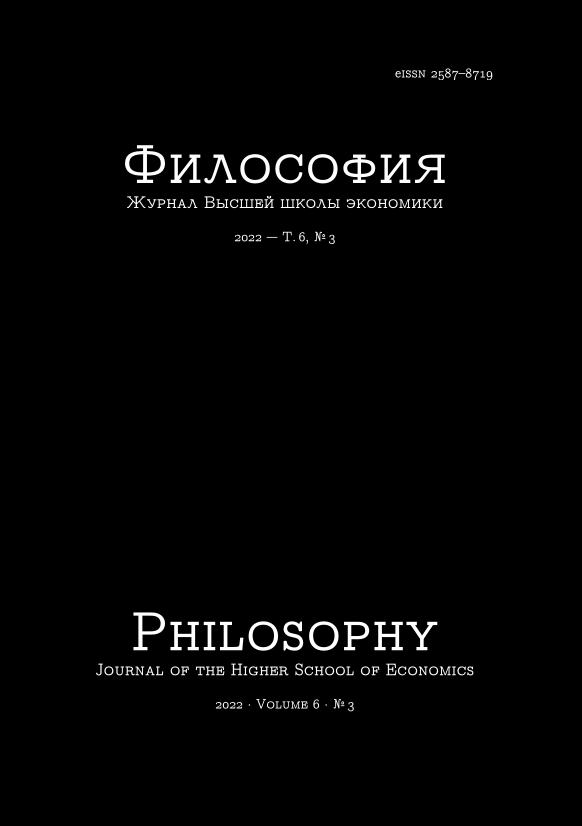Conceptualization of the Absurd in Philosophy
From Logic to Logic of Sense
Abstract
The article discusses the question of what absurd is. At first, the absurd seems to exist in two forms — semantic and existential. Semantic absurd is a characteristic of a statement, whilst existential absurd is a characteristic of a person's existence. However, the article shows that these are not two different entities but one. In antiquity, absurdity was synonymous with the falsity of a conclusion. In modern philosophy, Husserl, in Logical Investigations, believes that absurd objects cannot be understood. However, Tertullian's line appears already in early Christianity, linking absurd with an act of faith. In the 19th century, Kierkegaard was its representative. IIn the middle of the 20th century, Camus showed that the attitude to life as absurd is an honest view of life without illusions, followed by Nagel. In the 20th century, the absurd appeared in art, where it expanded the boundaries of consciousness. The new philosophy of the absurd takes into account its connection with novelty, creativity, liberation. It breaks established ties and makes the familiar new. Soviet scientist B.F. Porshnev points out that a particular act of thinking, “deabsurdization”, underlies logic. J. Deleuze in Logic of Sense demonstrates that nonsense provides the “gift of meaning”, comprehension always begins with some bewilderment; common sense is unproductive, but nonsense makes thought work. Before Deleuze, the absurd was an anthropological phenomenon, howbeit Deleuze gave it an ontological status. The modern philosophy of the absurd may even turn out to be theology.
Downloads
Copyright (c) 2022 Philosophy. Journal of the Higher School of Economics

This work is licensed under a Creative Commons Attribution-NonCommercial 4.0 International License.






